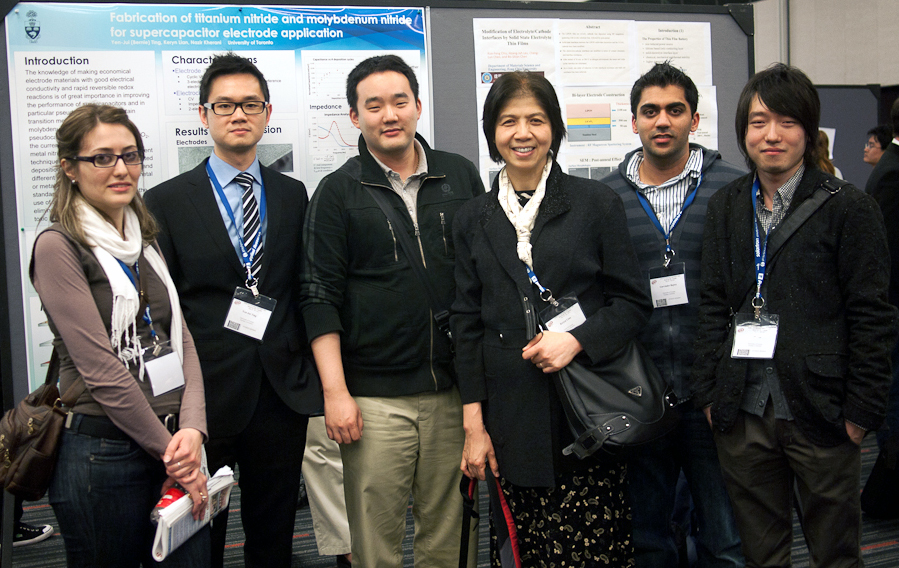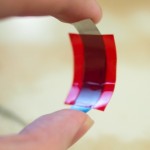MASc candidate Han Gao wins first place for his research poster at the 2011 Electrochemical Society (Canadian Section) Fall Symposium
[sharexy]

Photo: MASc candidate Han Gao (right) with Associate Professor Keryn Lian (centre right) and the Flexible Energy & Electronics Laboratory group at the 2011 Electrochemical Society (Canadian Section) Fall Symposium
November 18, 2011
Materials Science & Engineering MASc candidate Han Gao (MSE 1T0) won first place in the student poster competition of the Electrochemical Society (ECS) Canadian Section Fall Symposium 2011, held at the University of Calgary on November 5, 2011. Gao’s poster, titled “Proton Conducting Polymer Electrolytes for Ultrahigh Rate Solid Electrochemical Capacitors” showcases advanced research in the area of materials for super-capacitor design conducted within the Flexible Energy & Electronics Laboratory, supervised by Associate Professor Keryn K. Lian.
Super-capacitors (also known as electrochemical capacitors or ultra-capacitors), are a class of energy storage technologies used for rapid, high-power delivery. In contrast to batteries, which have the ability to store large amounts of energy but cannot deliver power in a short time (think hybrid car engine ignition), super-capacitors offer a bridging solution between these two competing design goals.

Conventionally, ionic conductive liquid solutions (also known as liquid electrolytes) are used to attain the high conductivity property critical for high performance electrochemical energy storage devices. However, liquid-based super-capacitors devices require bulky metal casings to prevent leakage and often contain environmentally unfriendly chemicals and materials.
The Flexible Energy & Electronics Laboratory’s research team focuses on the next-generation of high-performance solid polymer-based super-capacitors. In Gao’s award-winning research, he alters the internal materials chemistry as well as the polymer electrolyte to demonstrate a super high-rate performance of 100 V/s. This is the highest charge delivery rate reported to date for solid super-capacitors, exceeding even many advanced liquid electrolyte-based devices.
“In addition to their outstanding performance, solid polymer-based super-capacitors have the advantage of being lightweight, thin, and flexible, thus enabling form factors as small as a postage stamp and versatile enough to be embedded into cars or airplane bodies,” says Professor Lian. “The polymer electrolytes developed by our team promise to enable future high-power consumption systems, from flexible and wearable electronics to performance applications such as automotive and other transportation technologies.”